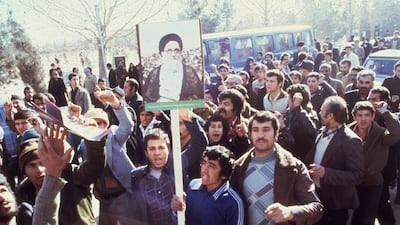The Book of Fate [Amazon.com; Amazon.co.uk], one of Iran's best-selling novels ever despite being banned twice, had its paperback release this month. To mark the occasion, its author, 64-year-old Parinoush Saniee, spent a week promoting the book in Bulgaria, before flying to Heidelberg, Germany, to spend time with her two children and grandchild.
“This book was the first to portray both periods, pre- and post-revolution. [The] initial public reception, for me, was unbelievable. Many claimed the book portrayed their life stories – and many could see themselves as a character in the book. That was the confirmation, if any was needed, of the authenticity of my research,” says Saniee.
It has been reprinted 20 times and has won the Italian Boccaccio prize for best international book, a testament to the international acclaim it has received.
The story revolves around an intelligent young Iranian girl, Massoumeh, who falls in love with a chemist’s assistant. When her family finds out, she is badly beaten by her brother and married off to a stranger.
This man is not unkind, but happens to be a communist, and is eventually arrested by the shah’s secret police. As Massoumeh grows older, the political landscape begins to change – culminating in the Iranian Revolution, and beyond. She has children of her own: one son flees to Germany, another goes to fight against Iraq, and her well-educated daughter chooses to become engaged to a man she loves.
Despite the book’s critical and commercial success, it has fallen prey to Iran’s notoriously aggressive censorship. All books in Iran must be approved by the Ministry of Guidance, with criteria set by the regime. Saniee initially questioned the ministry’s decision to ban her book.
“Even when I asked what subject matter in the book was far-fetched, and where had I possibly exceeded realities at the time, the ministry’s response was that it was not a question of the subject matter being untrue or unrealistic, but that [the book] was bitter and would negatively impact perceptions.”
Saniee says her novel has, at times, been able to circumvent bans, such as when it was first published under the regime of Mohammad Khatami, who led a reformist presidency from 1997 until 2005. It was, however, banned after the arrival of president Mahmoud Ahmadinejad, when it was on its 14th print run. This was overturned after a successful legal case, represented by the 2003 Nobel Peace Prize-winning human rights lawyer Shirin Ebadi.
According to Small Media, which campaigns for freedom of expression in Iran, Tehran’s International Book Fair in 2010 saw the government ban the sale of any books that had received publishing approval before 2007 – two years after Ahmedinejad came to power.
Reporters Without Borders was an ardent critic of the Ahmedinejad regime’s stifling of freedom of speech and remains equally sceptical of President Hassan Rouhani’s campaign promise to pursue a change “in favour of free speech and media freedom”. Today, 64 journalists and netizens are in prison in Iran.
Saniee is one of many Iranian authors exhausted by the country’s heavy-handed censorship. She says: “Now that my last book has been gathering dust in the Ministry of Guidance for seven years, awaiting permission, the last traces of any incentive to write another are diminished.
“I don’t really know how Iran is viewed or judged in the West,” she continues. “All I can ask is not to judge Iran based on the current ideologies of her governors.”
A society, she says, isn’t defined by such factors but by its collective traditions, customs, beliefs, culture, religion and history. However, she adds, those who fail to adhere to harsh guidelines and “ancient customs” are punished. “To uphold one’s reputation, families are forced into unusual and drastic measures,” she says. Many will stop at nothing to protect their reputation: “Indeed, there is no shortage of suicide, long family feuds and even honour killing. Societal expectations are more vital to people than life and death.”
The book begins roughly half a century ago, when the average marriage age for women was between 15 and 18. Marriages at the time were traditional and straightforward: arranged by the groom’s parents, with the bride exercising no choice. This approach is often the norm among traditional families, especially in rural areas, she adds, though things are changing.
“Women of that era, who lacked many rights themselves, have brought up their daughters as educated, cultural and aware. Consequently they do not easily submit to arranged marriages now … [but] this also rules out puppy love from the equation.”
Hareth Al Bustani is a features writer for The National.

